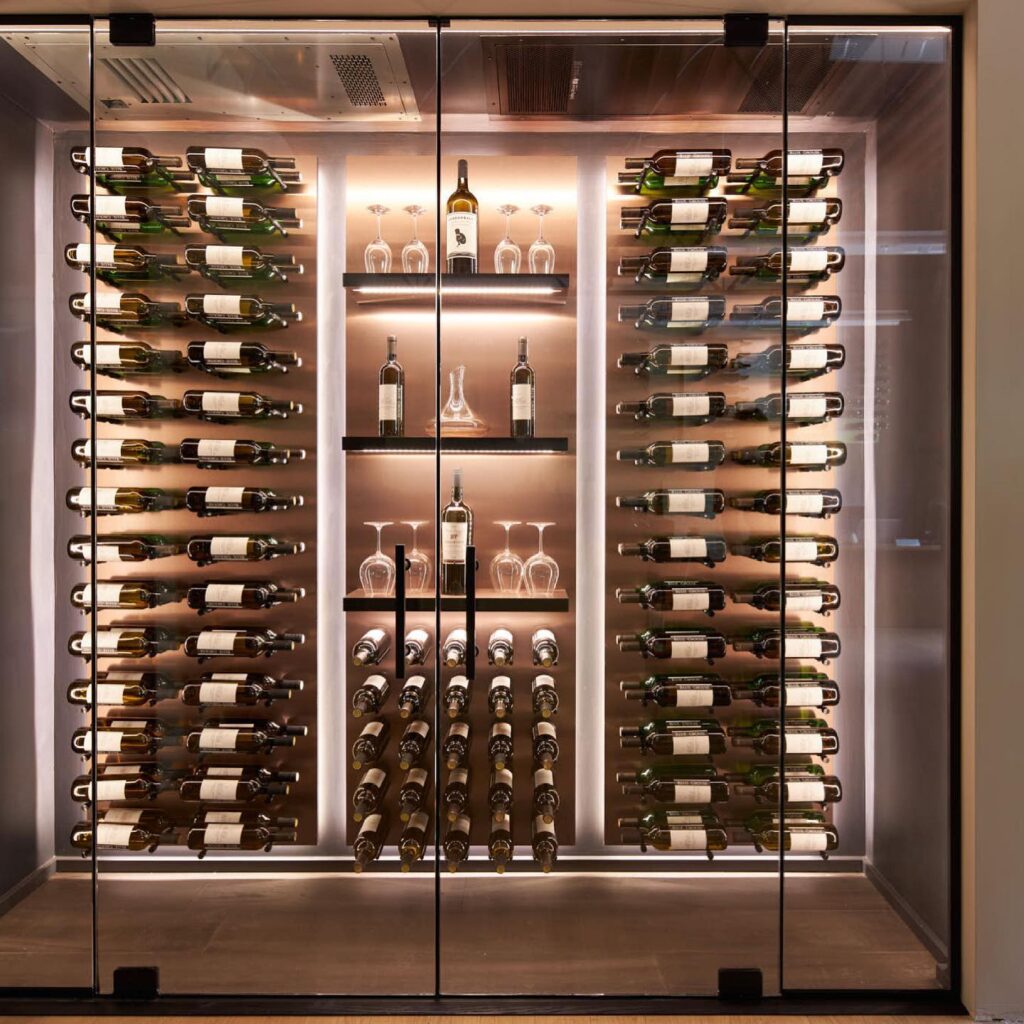When designing a wine cellar, every detail matters—from temperature control to humidity levels. But one often overlooked element is the type of glass used for doors and enclosures. The right glass not only enhances aesthetics but also protects your wine from harmful UV rays and temperature fluctuations.
So, what is the best glass for a wine cellar? Let’s break it down.
1. Tempered Glass: The Standard for Safety
Tempered glass is a popular choice for wine cellar doors because it is four to five times stronger than regular glass. If broken, it shatters into small, blunt pieces rather than sharp shards, making it safer for homes and commercial cellars.
Best for:
2. Low-E (Low-Emissivity) Glass: Superior Insulation
Low-E glass has a microscopically thin coating that reflects infrared light, helping to maintain a consistent temperature inside the cellar. It also blocks harmful UV rays, which can degrade wine quality over time.
Best for:
3. Laminated Glass: Extra Protection & UV Blocking
Laminated glass consists of two or more layers with a plastic interlayer, providing impact resistance and 99% UV protection. It’s ideal for wine cellars exposed to direct sunlight or in high-traffic areas.
Best for:
4. Double-Glazed (Insulated) Glass: Maximum Efficiency
Double-glazed glass features two panes with an air or gas (like argon) gap in between, offering superior insulation. This helps reduce energy costs and keeps temperature fluctuations to a minimum.
Best for:
Key Factors When Choosing Wine Cellar Glass
UV Protection – Prevents wine spoilage from light exposure.
Strength & Safety – Tempered or laminated glass is best.
Insulation Properties – Low-E or double-glazed glass helps maintain stable conditions.
Aesthetics – Frosted or tinted glass can add privacy while still showcasing your collection.
Final Verdict: What’s the Best Glass for Your Wine Cellar?
For most wine cellars, tempered Low-E glass or laminated double-glazed glass offers the best combination of safety, UV protection, and insulation. If your cellar is in a high-light area, prioritize UV-blocking laminated glass. For maximum temperature stability, opt for double-glazed Low-E panels.
Investing in the right glass ensures your wine ages perfectly while adding elegance to your cellar’s design.
Ready to build or upgrade your wine cellar? Consult our glass specialist to choose the best option for your collection. Call us today at 800-323-3130 or email us at info@coolwinecellar.com

